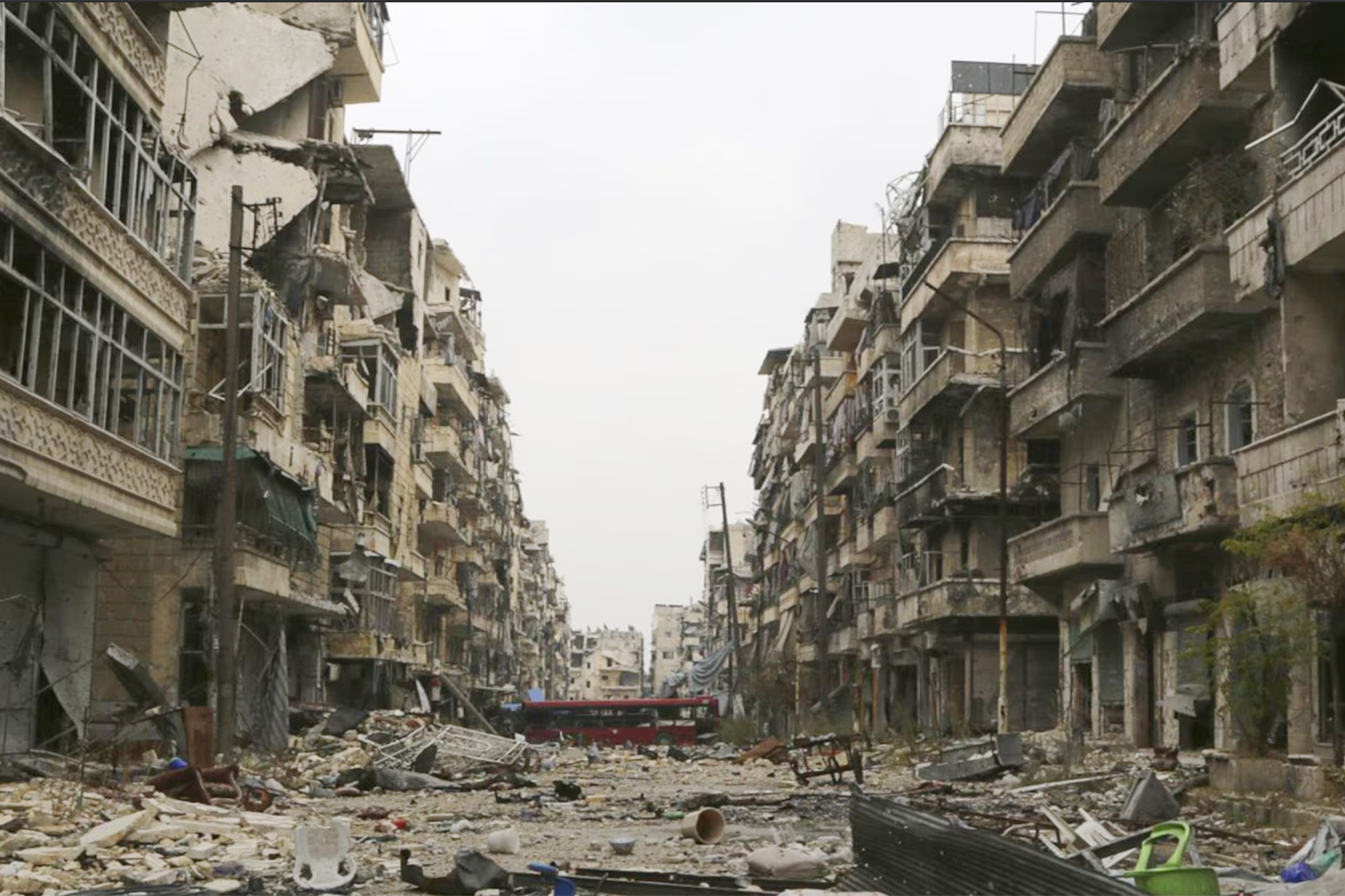Syria’s reconstruction: A long road ahead after 13 years of civil war


As Syria enters a new era after 13 years of devastating civil war, the task of reconstructing the country looms large and challenging.
The civil war, which began in 2011 as peaceful protests against the Bashar al-Assad administration, rapidly escalated into one of the most destructive conflicts in recent history. The toll has been catastrophic, leaving deep scars on the country’s infrastructure, economy, and society. Experts estimate that the reconstruction of Syria will take years, if not decades.
The war has displaced millions, forced families to flee their homes, and claimed the lives of nearly one million people. Cities that once stood as symbols of Syria’s rich history and cultural heritage—such as Damascus, Aleppo, and Homs—now lie in ruins. Entire neighborhoods have been reduced to rubble, their residents scattered across borders or buried under debris.
Beyond physical destruction, Syria’s critical infrastructure has been decimated. Electricity grids, internet services, and communication networks are barely functional, leaving communities disconnected and struggling to rebuild their lives. The regime's scorched-earth policies have further exacerbated the devastation. Homes abandoned by opposition forces were systematically burned or destroyed, erasing entire neighborhoods. Families who returned to their lands in hopes of rebuilding found little more than ashes and despair.
According to reports by the United Nations (UN) and various international organizations, the estimated cost of rebuilding Syria could exceed 400 billion dollars. This staggering figure highlights the immense scale of the damage, far beyond the capacity of Syria’s war-torn economy to address alone.
The international community has so far withheld financial commitments for Syria’s reconstruction, citing political instability and the absence of a sustainable peace. Many nations remain hesitant, linking their support to the country’s progress toward stability and political reforms. Until then, contributions have been limited to humanitarian aid and selective reconstruction efforts.
The path to Syria’s recovery is fraught with challenges. Political, economic, and security obstacles remain unresolved, delaying reconstruction efforts and perpetuating the suffering of millions. Stabilizing the country will require a coordinated international response and a genuine commitment to address the underlying causes of the conflict.
For now, Syria faces an uncertain future. Its cities remain scarred, its people displaced, and its infrastructure shattered. The country’s reconstruction will be a slow, costly process—one that demands both internal resolve and global solidarity. Without significant international support, Syria’s long road to recovery could stretch far into the future, leaving a generation to rebuild the ruins of their homeland. (ILKHA)
LEGAL WARNING: All rights of the published news, photos and videos are reserved by İlke Haber Ajansı Basın Yayın San. Trade A.Ş. Under no circumstances can all or part of the news, photos and videos be used without a written contract or subscription.
The humanitarian catastrophe in the Gaza Strip deepened further on Sunday as medical authorities announced that the death toll has risen to 69,483 Palestinians, overwhelmingly women and children, since the Israeli occupation launched its assault on October 7, 2023.
Japan's iconic Sakurajima volcano erupted violently in the early hours of Sunday, propelling a massive column of ash and smoke 4,400 meters (over 14,400 feet) into the sky, prompting flight cancellations and ashfall warnings for nearby communities.
The World Health Organization (WHO) has issued a stark warning over the catastrophic collapse of Gaza’s health sector, revealing that more than 900 Palestinian patients have died while waiting for medical evacuation permits that Israeli authorities continue to block or delay.
Hamas spokesperson Hazem Qassim has accused the Israeli government of deliberately obstructing the second phase of ongoing ceasefire negotiations, describing the blockade as an intentional effort to hinder progress toward peace in the besieged Gaza Strip.